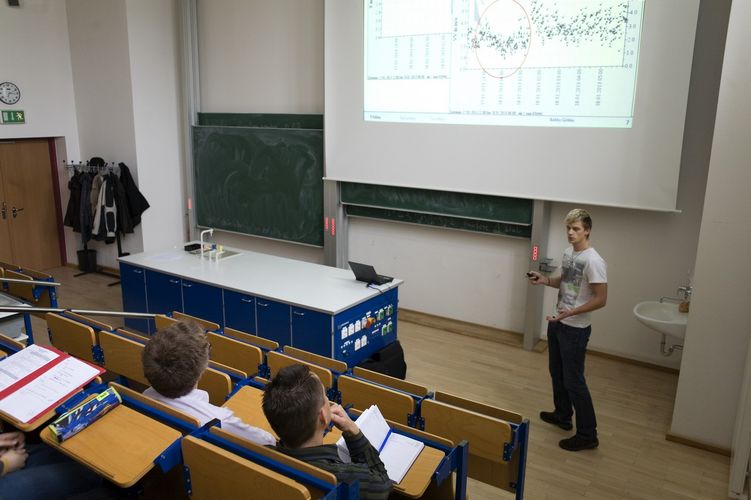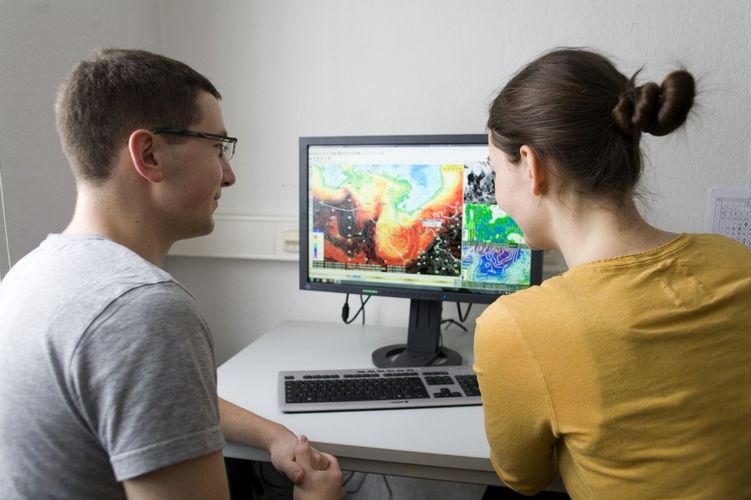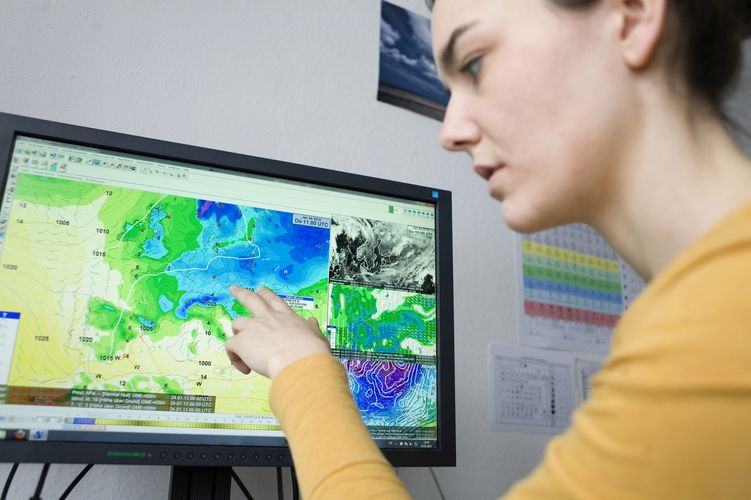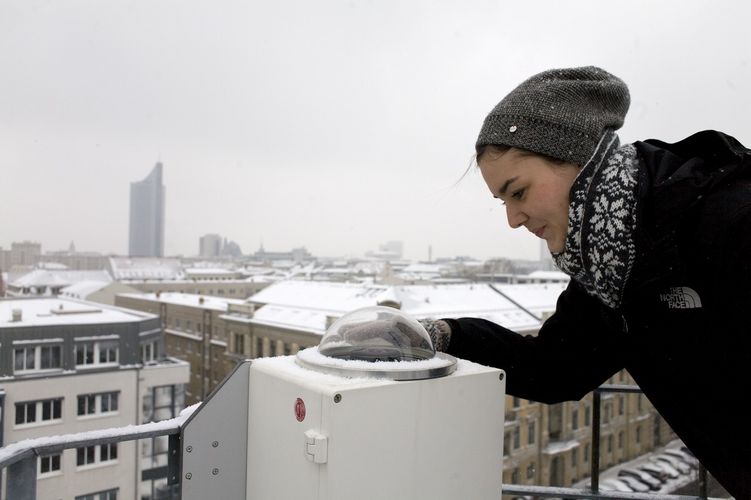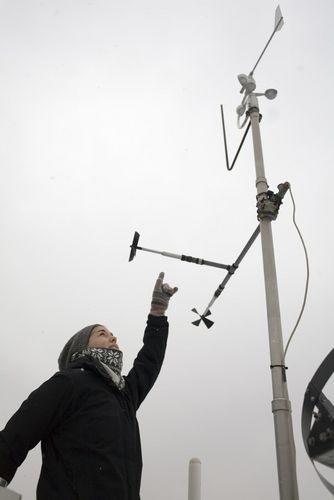The English-language master’s degree programme in Meteorology is research-oriented and provides in-depth insight into theoretical and experimental working methods in meteorology. You will learn to independently address and answer topical questions in general, applied, and theoretical meteorology. In-depth insights into the current state of scientific discourse are provided through intensive collaboration in the Institute of Meteorology’s working groups and its cooperation partners in Leipzig
At a glance
-
Field of study
natural and earth science -
Degree type
postgraduate -
Degree
Master of Science -
Language of instruction
English -
Full/part-time
full-time, part-time -
Course start
winter semester, summer semester -
Admission restriction
without admission restriction -
Standard period of study
4 Semester
-
ECTS credits
120
Requirements
- A completed bachelor’s degree or a degree from a state or state-recognised university of cooperative education in a subject related to the natural sciences covering at least two modules with physical or mathematical basics of the bachelor's programme Meteorology or equivalent physical or mathematical knowledge
- Knowledge of English at B2 level of the Common European Framework of Reference for Languages (or equivalent)
The faculty will check whether the above requirements have been met and then issue an official notification. This serves as proof that the candidate meets the relevant admission requirements.
Contents
The English-language degree programme comprises four semesters and is oriented towards the current research content of the Institute for Meteorology and its cooperation partners. It includes:
- A compulsory area for an in-depth insight into the fundamental areas of meteorology
- A compulsory elective area, which is designed directly by the scientific working groups and
- A research area with in-depth familiarisation with a scientific topic
You will learn to independently address and answer topical questions in general, applied and theoretical meteorology as part of intensive cooperation with scientists at the Institute for Meteorology, the Leibniz Institute for Tropospheric Research and the Halle – Leipzig Centre for Environmental Research.
The compulsory area of your studies focuses on the following topics:
- Dynamics and synoptics, weather briefing
- Atmospheric radiation
- Global climate dynamics
The compulsory elective area includes:
- Modules on current scientific research
- A physics-based compulsory elective area
The research area deals with learning about:
- Meteorological research
- Meteorological working methods
The course is completed in the fourth semester with a master’s thesis.
After graduating, you will be able to contribute to meteorological research at international level.
The master’s programme comprises a total of 120 credits (60 per academic year). Of these
- 80 credits are from the core subject
- 10 credits are from the elective part
- 30 credits are from the master’s thesis
For the elective area, two modules from the meteorological compulsory elective offer of the M. Sc. Meteorology (A1 to A7; T1 to T6; E1 to E5) can be selected. You can take modules offered by other degree programmes in accordance with the valid subject cooperation agreements.
The course is taught in English.
- English-language degree programme
- Compulsory elective modules and laboratory courses in the institute’s scientific working groups and its cooperation partners
- A stay abroad is recommended
There is high demand for graduates who specialise in teaching and lecturing meteorological subjects, including for the general public. There is also a large variety of job opportunities for meteorologists that requires a broad choice of specialisation during their education.
- Statistical analysis methods
- Numerical methods using very complex computer systems
- Development of experimental methods
- Meteorological research in all fields of atmospheric sciences
The degree programme prepares you for scientific and executive professional activities and provides you with the necessary technical knowledge, skills and methods.
After completing your studies, you will have career opportunities in the following areas, among others:
- Meteorological research
- Weather and climate services
- Renewable energy: consulting and predictions
- Environmental protection and management
- Air pollution control and noise protection
- Meteorological measurement technology: development, quality assurance, monitoring
- Meteorological reports, climate reports
The master’s degree in meteorology also prepares you for a subsequent doctorate.
A stay abroad is generally recommended. It must be organised by the students themselves.
Any academic credits or examinations completed abroad can be credited upon application. A maximum of 30 credits can be acquired abroad.
Application
Course start: winter semester and summer semester
Admission restriction (NCU): no
Application period: 2 May–15 September for the winter semester; 1 December–15 March for the summer semester.
Application portal: AlmaWeb
Please make sure you note our further information on the pages “Online application” and “Applying for a master’s programme”.
International students can find information about application periods and how to apply on the “International” page.
Options in the winter semester: 2nd semester, 3rd semester and 4th semester – each without restrictions on admission
Options in the summer semester: 2nd semester, 3rd semester and 4th semester – each without restrictions on admission
Application period: 2 May–15 September for the winter semester; 1 December–15 March for the summer semester.
Application portal: AlmaWeb
Special enrolment requirements: credits form (Anrechnungsbescheid)
Further information can be found on our page “Applying for a higher semester of study”.
International students can find information about application periods and how to apply on the “International” page.






























































